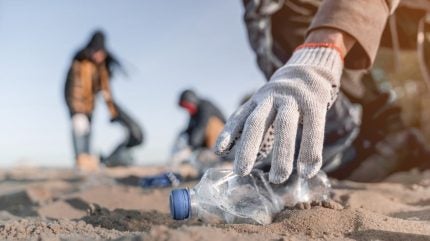
The Clean Oceans Initiative (COI) 2.0 was launched at the 2025 United Nations Ocean Conference in Nice, France, to mitigate ocean plastic pollution.
An expanded collaborative effort by six public development banks, the initiative has set a joint financing target of €3bn ($3.4bn) from 2026 to 2030.

Discover B2B Marketing That Performs
Combine business intelligence and editorial excellence to reach engaged professionals across 36 leading media platforms.
The Asian Development Bank joins as a new member, enhancing the partnership’s global reach and regional expertise.
The bank’s participation is particularly significant given that Asia is a major source of ocean plastics. The initiative also plans to implement robust and practical indicators to measure its impact, with a focus on plastic pollution prevention.
Other participating banks include Agence Française de Développement (AFD), European Investment Bank (EIB), Kreditanstalt für Wiederaufbau (KfW), Cassa Depositi e Prestiti (CDP), and European Bank for Reconstruction and Development (EBRD).
Since its inception in 2018 and subsequent extension in 2022, the Clean Oceans Initiative has become the leading multilateral endeavour to fund projects that combat marine plastic pollution.

US Tariffs are shifting - will you react or anticipate?
Don’t let policy changes catch you off guard. Stay proactive with real-time data and expert analysis.
By GlobalDataAs of last month, the initiative met its goal of securing €4bn in long-term financing for projects that mitigate the release of plastics and other pollutants into the sea.
These projects span various regions, focusing on improved waste management systems, flood protection and circular economy.
The United Nations has warned that, without intervention, the annual influx of plastic waste into aquatic ecosystems could triple by 2040 to 23 to 37 million tonnes (mt) from approximately 11mt in 2021.
Oceans play a crucial role in sustaining life on Earth, but plastic pollution poses a severe threat to marine ecosystems and the livelihoods of those reliant on healthy oceans.
Most ocean plastics stem from poorly managed land waste, exacerbated by insufficient waste collection and water treatment facilities.
Microplastics, which contribute around 1.5mt to ocean pollution annually, are a particular concern.
The initiative is dedicated to funding projects in coastal regions, especially in Asia, Africa, and Latin America, where the challenge of managing waste and water in major river systems is most acute.





